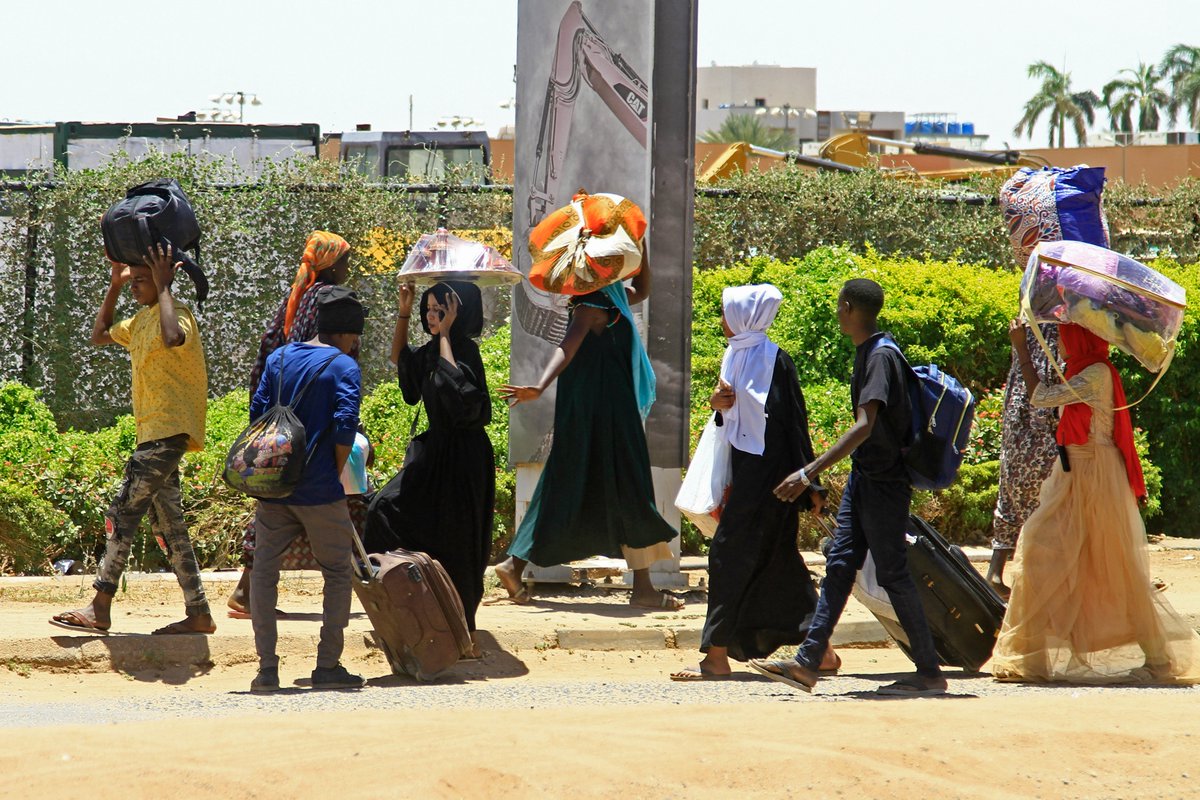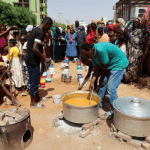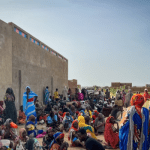Sudan, a nation in Northeast Africa, has been grappling with a protracted crisis that has had far-reaching consequences, not only for its own population but also for neighboring countries and the broader African continent. The crisis in Sudan has led to a humanitarian catastrophe, triggering a range of interconnected challenges, including refugee influxes, food insecurity, and regional instability.
In this article, TVC News Senior Executive, Digital and Social Media, Wasiu Salami explores the ways in which the crisis in Sudan has caused a humanitarian crisis in the rest of Africa.
One of the most significant consequences of the Sudanese crisis is the massive displacement of people, both within Sudan and across its borders. Ongoing conflicts, ethnic tensions, and political instability have forced millions of Sudanese to flee their homes, seeking safety and refuge in neighboring countries such as Chad, Ethiopia, South Sudan, and Uganda. This influx of refugees puts a tremendous strain on the limited resources and infrastructure of these host countries, exacerbating existing challenges and increasing the vulnerability of both the refugees and host communities.

The displacement crisis also intensifies food insecurity in the region. As people are uprooted from their lands, agricultural production is disrupted, leading to reduced food availability and increased dependency on external assistance. Sudan, which was once known as the “breadbasket of Africa,” is now grappling with acute food shortages and a high prevalence of malnutrition. This crisis extends beyond its borders, affecting neighboring countries that rely on Sudan for agricultural products and trade. The disruption in food supply chains and the strain on resources contribute to a broader regional food crisis, exacerbating the already dire situation of millions of people.

Moreover, the instability in Sudan has a spillover effect on regional security. Armed groups and militias operate across porous borders, exacerbating conflicts and creating instability in neighboring countries. Sudan’s crisis has been linked to the conflict in South Sudan, with the movement of armed groups and the proliferation of small arms exacerbating the already volatile situation. This regional instability hampers development efforts, undermines social cohesion, and perpetuates cycles of violence, all of which have grave humanitarian consequences for the affected populations.
The crisis in Sudan also hampers the delivery of humanitarian aid to those in need. Ongoing conflicts and insecurity impede access to affected areas, making it difficult for humanitarian organizations to provide life-saving assistance and essential services. Humanitarian workers face numerous challenges, including restricted access, threats to their safety, and the looting of aid supplies. This hampers the timely provision of aid and exacerbates the suffering of vulnerable populations.
Addressing the humanitarian crisis in Sudan requires a multi-faceted approach. First and foremost, there is a need for concerted efforts to promote peace, stability, and reconciliation within Sudan itself. This includes facilitating dialogue and negotiations between conflicting parties, addressing the root causes of the conflicts, and promoting inclusive governance and respect for human rights. Regional cooperation is also crucial, with neighboring countries working together to address the influx of refugees, enhance border security, and collaborate on conflict resolution initiatives.
Furthermore, the international community must provide increased support to Sudan and neighboring countries in addressing the humanitarian needs of affected populations. This includes funding for humanitarian organizations, supporting host countries in their efforts to provide essential services to refugees, and facilitating access for aid agencies to reach those in need. Long-term investments in sustainable development and resilience-building initiatives are also vital to address the underlying causes of the crisis and promote self-reliance among affected communities.
In conclusion, the crisis in Sudan has had profound humanitarian consequences, reverberating across the rest of Africa. The displacement of people, food insecurity, regional instability, and challenges in humanitarian aid delivery are interconnected aspects of the crisis that require urgent attention and collective action. Addressing the root causes of the Sudanese crisis, promoting peace and stability, and providing adequate support to affected populations and neighboring countries are essential steps toward mitigating the humanitarian impact and building a more secure and prosperous future for Sudan and the broader African continent.














